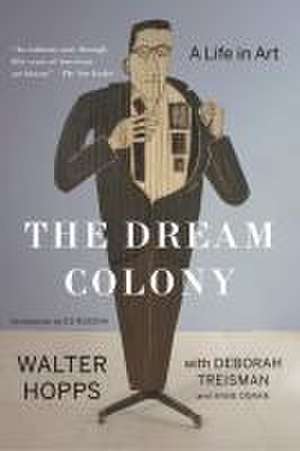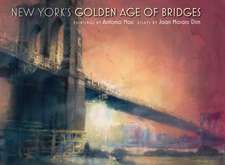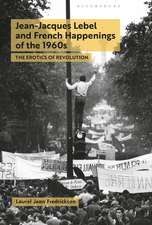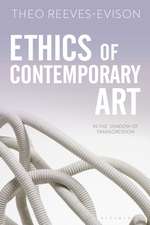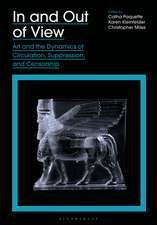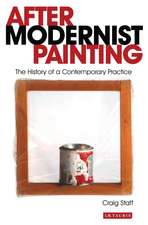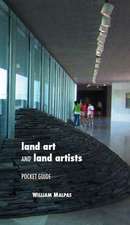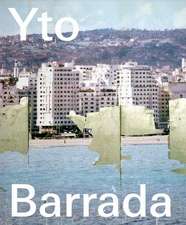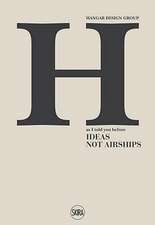The Dream Colony
Autor Walter Hopps, Deborah Treisman, Anne Doranen Limba Engleză Paperback – 29 oct 2024
Art Forum's Best of the Year List
A panoramic look at art in America in the second half of the twentieth century, through the eyes of the visionary curator who helped shape it.
An innovative, iconoclastic curator of contemporary art, Walter Hopps founded his first gallery in L.A. at the age of twenty-one. At twenty-four, he opened the Ferus Gallery with then-unknown artist Edward Kienholz, where he turned the spotlight on a new generation of West Coast artists. Ferus was also the first gallery ever to show Andy Warhol's Campbell's Soup Cans and was shut down by the L.A. vice squad for a show of Wallace Berman's edgy art. At the Pasadena Art Museum in the sixties, Hopps mounted the first museum retrospectives of Marcel Duchamp and Joseph Cornell and the first museum exhibition of Pop Art--before it was even known as Pop Art. In 1967, when Hopps became the director of Washington's Corcoran Gallery of Art at age thirty-four, the New York Times hailed him as "the most gifted museum man on the West Coast (and, in the field of contemporary art, possibly in the nation)." He was also arguably the most unpredictable, an eccentric genius who was chronically late. (His staff at the Corcoran had a button made that said WALTER HOPPS WILL BE HERE IN TWENTY MINUTES.) Erratic in his work habits, he was never erratic in his commitment to art.
Hopps died in 2005, after decades at the Menil Collection of art in Houston for which he was the founding director. A few years before that, he began work on this book. With an introduction by legendary Pop artist Ed Ruscha, The Dream Colony is a vivid, personal, surprising, irreverent, and enlightening account of his life and of some of the greatest artistic minds of the twentieth century.
| Toate formatele și edițiile | Preț | Express |
|---|---|---|
| Paperback (1) | 116.90 lei 3-5 săpt. | |
| Bloomsbury USA – 29 oct 2024 | 116.90 lei 3-5 săpt. | |
| Hardback (1) | 154.44 lei 3-5 săpt. | |
| Bloomsbury Publishing – noi 2017 | 154.44 lei 3-5 săpt. |
Preț: 116.90 lei
Nou
22.37€ • 23.27$ • 18.47£
Carte disponibilă
Livrare economică 24 martie-07 aprilie
Specificații
ISBN-10: 1639734856
Pagini: 336
Dimensiuni: 140 x 208 x 25 mm
Greutate: 0.28 kg
Editura: Bloomsbury USA
Caracteristici
Notă biografică
Recenzii
InThe Dream Colony: A Life in Art, [Walter Hopps's] lively posthumous memoir, we learn all manner of detail from Hopps's life . . . A very good read.
Based on interviews conducted by artist Anne Doran and shaped by belovedNew Yorkereditor Deborah Treisman, the colorful tale of this natural-born curator gets told in his own gift-for-the-yarn cadences.
Stories flow from every page: about his talented and eccentric family in Los Angeles of the 1920s-30s; reminiscences of artists famous and obscure; of art collectors and institutions. Learned but far from stuffy, Hopps merged life and career into one passionate, improvisatory, gonzo experience, his voice and personality present here.
A scintillating and revelatory volume . . . Hopps was a genuine original whose influence will continue to radiate.
A wealth of recollections . . . [Hopps's] idiosyncratic voice rings true inThe Dream Colony.
For those unfamiliar with Hopps, this semi-auto-biographical story will be even more delightful--if only for the anecdotes and images . . . [The Dream Colony] should be treasured by art enthusiasts of all stripes.
Walter Hopps was everyone's model of what a curator should be. His landmark exhibitions stay in the mind's eye decades later. Now we have his memoir, a record of Walter's unique personality, his astonishing range of interests and curiosities, and the depth of his feeling for and commitment to the art of his time. Essential reading.
Walter Hopps was a celebrated museum curator and director, but he had many of the qualities of an artist--he was original, he was inspired, and he was famously late for appointments. He knew the best stories about artists, or at least about Marcel Duchamp, Joseph Cornell, Robert Rauschenberg and other members of the avant-garde with whom he worked closely. His memoir offers an unusually intimate glimpse at the post-war American art scene. For once, you didn't have to be there, because Hopps was there and tells all.
The Dream Colonyimmediately provides its reader with the exhilarating conviction that you are in the presence of both the craziest and most sane person you will ever be lucky enough to know. Walter Hopps's prodigious gifts as a storyteller are every bit the equal to the adventures that defined a singularly brilliant and deeply principled life in art.
Walter Hopps was one of the greatest talkers I've ever known, and he's at his quirky best inThe Dream Colony--a superb evocation of the art world he knew and loved, and a joy to read.
Walter Hopps, the marvelous mad maven of modern art in America, was one clean gleam of a man--never less than completely inspired and always witty in the extreme. Treisman and Doran have accomplished a small miracle, delivering his voice pitch-perfect to the page. Truly like capturing lightning in a bottle!
